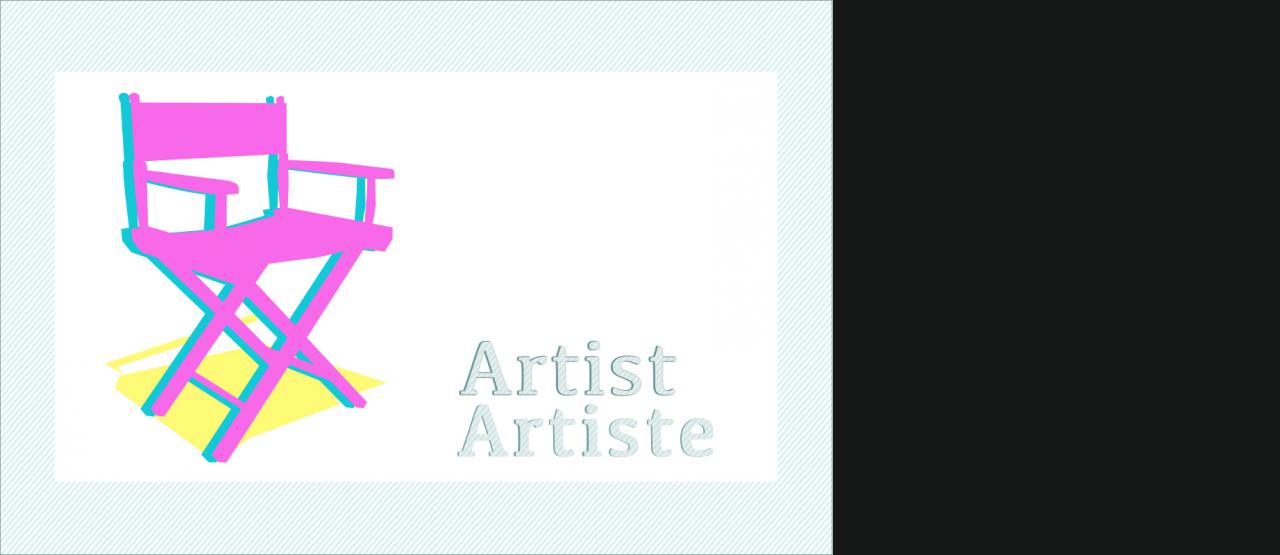Frank Vitale

American-bred Vitale and Moyle, both McGill-trained, were the sexually ambiguous enfants terribles of anglophone Montreal indie feature filmmaking of the 1970s, and together were responsible for two of the anomalous milestones in English-language queer narrative film.
Montreal Main (dir. Vitale, scen. Moyle, 1974, 88) was an unexpected breath of fresh air in the early seventies, and stands up well thirty years later as a brave and original tale of intergenerational love and betrayal. Vitale had already been noticed within the video community for his original and sexually ambiguous episodic narrative Hitchhiking (1972). In Main, Vitale co-wrote, directed and starred as the intense bearded photographer who falls for twelve-year-old long-haired Johnny from the suburbs, whom he meets hanging out on “The Main” with his hip artist and counter-culture friends, and it’s mutual (though apparently never consummated). Amazingly well received both here and in the US (the kneejerk hysteria over intergenerational relations apparently hadn’t yet taken over), Montreal Main met an ambivalent response in the embryonic gay media of the day: TBP’s Ron Dayman (Nov./Dec. 1974) called the film a “real cocktease” in its “repressed” sense of homosexuality, leaving its audience hoping the characters “would finally come out,” but praised the way the “sensual though latent character of [the couple’s] relationship comes across beautifully” and the film’s recognition of their entrapment “in an ageist, homophobic world where freedom is impossible.”
Rubber Gun (dir. Moyle, cinematography Vitale, 1977), follows in the same vein, a low-budget heist film set within a queerish countercultural setting. My 1980 analysis was appreciative:
Because homosexuality is peripheral to the quasi-thriller narrative of Rubber Gun, this film’s acceptance of gayness is much less problematical [than in Main]. A fascinating image emerges of a micro-milieu where sexual marginality is taken for granted. Gayness is not a privileged or challenged or suppressed terrain, it is just there. The plot is a pretext for a collage of warm, breathing portraits of characters, most of whom happen to be gay, but are usually too tired or too familiar or two drugged out to fuck each other. Waugh valued Montreal Main and Gun as “vivid documents of that world, seen from the inside, and of its inhabitants, each one incarnated in the improvised autobiographical mode” but had reservations about their politics of taken-for-granted apolitical ambiguity, oblivious to the heightened political tension of the “Olympics cleanup” period in local history (Copie zéro Oct. 1981, 27). In R of T, the author reports that students in 2002 had other political reservations, surprised by the misogyny of the Vitale-Moyle universe.
Both features presented in a supporting role fast-talking flamboyant local queer fixture Stephen Lack who would later go on to a sporadic 1980s career acting in US feature films as well as Cronenberg’s Scanners (1981). Vitale soon returned to his American roots and disappeared from view. His Canadian collaborator Moyle, who plays his awkward, “straight” jerk-off buddy in Main, and who was involved in what Waugh called “a wonderful comic seduction scene” with Lack in Gun, continued acting in supporting roles in other Canadian films including Outrageous! (1977) before also relocating in the States. There Moyle was sporadically active as director ever since, and his Times Square (1980), a teenaged girl homosocial love story, was to show up in queer community festivals. All of his subsequent films, including the Canadian New Waterford Girl (2000), excelled in depicting the confusion and passions of (basically straight) young people.


